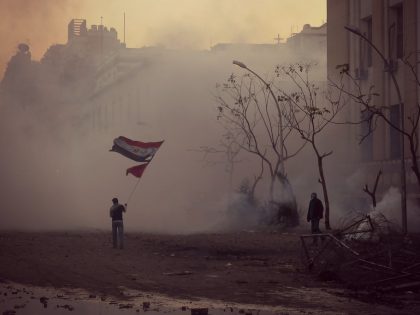
White privilege and hypocrisy in South Africa
Many white South Africans are doing all they can to maintain racial inequalities and white privilege. It's a recipe for disaster. Hopefully they get it before it’s too late.

Many white South Africans are doing all they can to maintain racial inequalities and white privilege. It's a recipe for disaster. Hopefully they get it before it’s too late.

Also meet the man who drove Malcolm X around in New York City and introduced him to Fidel Castro.

Rwanda’s president has long practiced a zero-sum political game in which he and his cronies are the primary winners.

Abdul Hakeem, in his 80s has lived in Morocco for over thirty two years, where he raised a family and runs two Aikido dojos.

In death, Fela Kuti is being rehabilitated by Nigeria's government. It may all be a false note.

Amilcar Cabral and the liberation of Guinea-Bissau and Cape Verde from Portuguese colonialism.

Including another worrying thread of the American "war on terror" on the continent: the training of vigilantes.

It would be an understatement to sum it up as a tragic tale.

Including, it will come as no shock to any woman that Cairo is ranked the worst city for women in the world.

There is considerably less sustained outcry on social media about African life in relation to ongoing forms of structural violence that may be more mundane but just as deadly.

Liberians and the footballing world seem eager to coronate George Weah, Africa’s only winner of the World Player of the Year award as the country's next president.

In today’s Eritrea, there is no difference between the jailer and the jailed. The political culture is so violent and desperate that the

Few places in the world have taken a beating like South Sudan. How did it come to this?

As the commodity super-cycle’s denouement now makes obvious the need for change, at least it is clear to all that Africans are not lying down.

Protests against Togo's ruling family aren't unusual, but this time there's a few unusual components, including that the protesters have a clear platform of demands.

Daniel arap Moi perfected rigging and state violence as politics. Uhuru Kenyatta campaigned with them and will extend and complete them in his second term.

Cubans are far better prepared than most for public health and climate emergencies. African countries should emulate the island nation in this regard.

That the recent revolutions failed to transcend political stagnation, is a product of the way neoliberalism functions as an ideology.

Angola is Exhibit 1,000,003 on how and why the West judge some elections "free and fair," and others not.

After an 11-year wait to vote in my own country, the whole thing took 3 minutes. One week later I'm still waiting to hear who won.